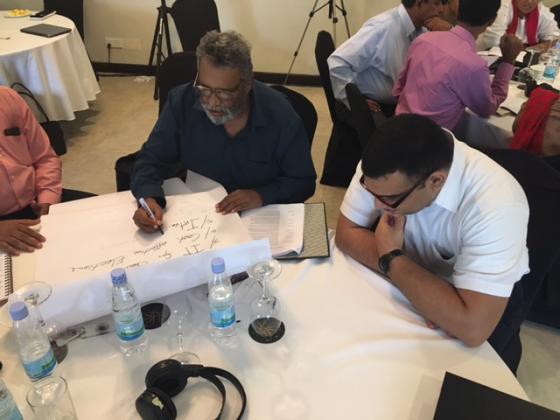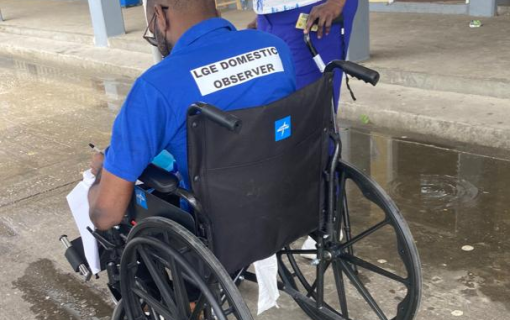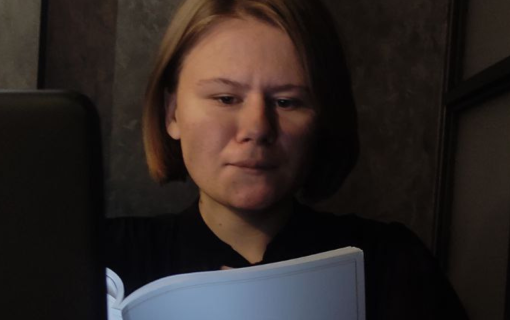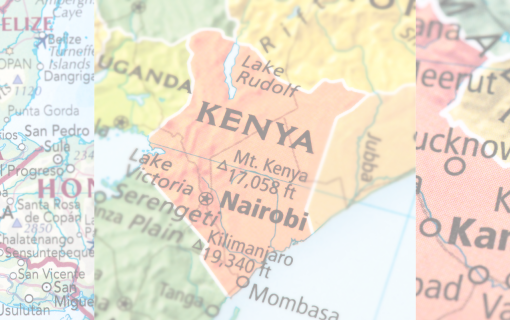
Inclusive Strategic Planning for Inclusive Elections
Under the U.S. Agency for International Development-funded “Improved Election Management Program” (IEMP), the International Foundation for Electoral Systems (IFES) is supporting the efforts of the Election Commission of Sri Lanka (EC) to design and implement a strategic plan that takes into account the inclusion of women, persons with disabilities, youth and other marginalized populations in Sri Lanka’s electoral process. The EC’s predecessor, the Department of Elections, took significant steps to promote inclusive participation in the 2015 presidential and parliamentary elections, and the strategic planning process aims to build on and expand these efforts to integrate all citizens as electoral stakeholders and promote a resilient democracy in Sri Lanka.
In May 2016, IFES and the EC held a four-day workshop to design a multi-year strategic plan that will bolster the EC’s ability to serve as a model for other election management bodies both in the region and around the world. In preparation for the workshop, IFES shared key inclusion-related recommendations from its Electoral Integrity Assessment with the EC, including creating a gender unit within the EC; adopting measures to proactively enfranchise internally displaced persons or other marginalized groups; and improving physical accessibility of polling stations and Election Day operations to ensure full inclusion of voters with disabilities. An IFES-facilitated stakeholder meeting between the EC and women’s rights advocates further informed the strategic planning preparations.
“We must believe and work toward the idea that inclusion is necessary to a resilient democracy, and take steps to ensure that we leave no one behind in the electoral process.” - Ishan Jalill, IFES Inclusion Adviser
At the strategic planning workshop, IFES presented on the importance of women’s leadership in elections and distributed inclusion-focused materials, including a compilation of international agreements related to the political rights of women and persons with disabilities, media guidelines for reporting on accessible elections, and a polling station accessibility checklist. IFES’ international expertise was complemented by its local Disability and Inclusion Adviser, who is blind, and its Gender Adviser, both of whom shared their experiences advocating for the democratic participation of women, youth, persons with disabilities and minorities.
During the workshop, the EC identified inclusion as a priority for its four-year strategic plan and is developing objectives to reach this goal – such as establishment of a gender and inclusion unit to promote the electoral participation of women and persons with disabilities; conducting a comprehensive study on barriers for women and persons with disabilities to electoral participation; and designing accessible voter education materials. Working with IFES, the EC’s efforts to institutionalize universal and equal access to the electoral process through implementation of its strategic plan will strengthen its efforts to conduct free, fair and inclusive local (2017) and national (2020) elections.









